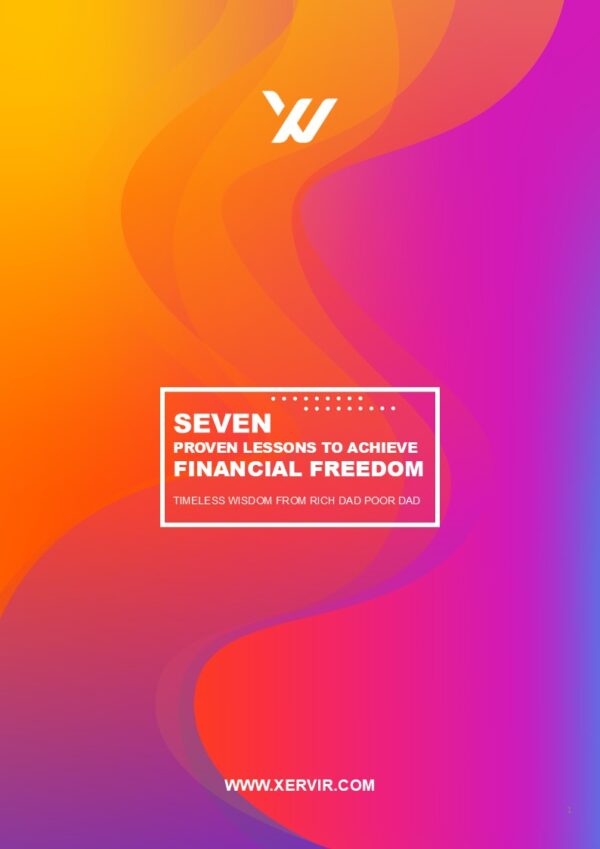Many people spend their entire lives working hard, chasing higher salaries, and hoping to achieve financial freedom. Yet, despite their efforts, true financial independence remains elusive. The reason? They haven’t learned a fundamental principle about wealth: the rich don’t work for money—they make money work for them.
In this article, you’ll learn exactly what this means, how to shift your mindset, and practical examples of people who have transformed their lives by embracing this idea.
Why You Should Stop Working Just for Money
When you focus solely on earning a paycheck, you’re trapped in a cycle called the “rat race.” Here’s how it usually goes:
- You work hard at a job.
- You get paid.
- You spend your earnings on bills, loans, cars, and gadgets.
- You must keep working to pay for these things again next month.
This approach offers short-term satisfaction but long-term stress because you never truly build wealth. You’re always one paycheck away from financial trouble.
The Problem with the Paycheck Mindset
Working solely for a paycheck encourages spending on liabilities—things that continually drain your money, such as expensive cars, luxury goods, and large homes that don’t generate income.
Instead of building financial security, this habit ensures you remain dependent on your job. The moment you stop working, your income stops. True financial security means earning income even while you sleep.
Shift Your Mindset: Make Money Work for You
The wealthy understand something crucial: money should be your employee, not your master. Rather than simply earning and spending, they invest their earnings into assets that generate passive income—income that keeps coming in without constant effort.
Examples of Income-Generating Assets:
- Rental properties
- Dividend-paying stocks
- Businesses that operate without daily management
- Intellectual property such as books, music, or courses
These assets provide steady income streams, allowing you to work less and live more freely.
How This Mindset Has Changed Real Lives
Many people worldwide have shifted from working for money to building assets and have seen transformative results:
Letizia Alto and Kenji Asakura (Physicians turned Investors)
Initially driven by demanding careers, Letizia and Kenji realized their salaries alone would not grant them the lifestyle or freedom they desired. They began investing in real estate, gradually accumulating over 100 rental units. Their passive income soon surpassed their salaries, giving them the freedom to reduce their work hours, spend more time with family, and engage in passion projects.
Brannon Potts (Former Paycheck-to-Paycheck Earner)
Brannon spent his early adulthood living paycheck-to-paycheck. Frustrated by his financial insecurity, he shifted his focus toward investing and asset-building. Over several years, he developed a significant real estate portfolio. Today, Brannon enjoys a stable passive income, plans an early retirement, and has escaped the stress of paycheck dependency.
These stories highlight the profound impact that shifting your financial mindset can achieve.
Practical Steps to Start Making Money Work for You
Here’s how you can begin changing your financial future right now:
Step 1: Financial Education
Start by understanding the difference between assets and liabilities:
- Assets: Generate money (e.g., rental properties, dividend stocks).
- Liabilities: Cost money (e.g., car loans, expensive gadgets).
Read books, articles, or take courses about personal finance and investing to deepen your knowledge.
Read more about Financial Education: Why Teaching Financial Literacy Is Essential for Your Financial Freedom
Step 2: Track Your Spending
For one month, record every expense. Label each as either an asset or a liability. This exercise will clearly reveal your financial habits and show where you can redirect spending toward assets.
Step 3: Begin Investing, Even Small Amounts
You don’t need massive savings to begin investing. Start small with affordable stocks, ETFs, or fractional real estate investments. Over time, small investments compound and grow significantly.
Step 4: Reinvest Your Earnings
When your investments begin to generate income, don’t immediately spend that money. Instead, reinvest it to buy more assets. This strategy accelerates your wealth-building.
Step 5: Learn to Manage Risks
Investments carry risks, but with proper knowledge, risks can be managed effectively. Diversify your investments and avoid placing all your money into a single asset or investment type.
Overcoming Common Barriers
Here’s how to overcome typical obstacles on your path to financial independence:
Fear of Losing Money
It’s natural to fear loss. Mitigate this fear by starting with small, manageable investments. Learn from small mistakes and gradually scale up as you gain confidence.
Laziness or Procrastination
Combat procrastination by creating simple, daily financial habits—like dedicating ten minutes daily to financial education or saving a specific amount each week.
Doubt and Cynicism
Many doubt their ability to succeed. Overcome this by learning from those who’ve achieved financial freedom. Remember, every successful investor was once a beginner.
Action Plan to Get Started Today
Follow this simple action plan to begin your financial journey:
- Write down your financial goals clearly.
- Spend one month tracking income and expenses.
- Identify one asset class you’d like to explore first (stocks, real estate, etc.).
- Invest a small, affordable amount immediately.
- Commit to weekly financial education.
- Review and adjust your strategy regularly.
We also made an E-book that can help you learn more about this topic:
SEVEN PROVEN LESSONS TO ACHIEVE FINANCIAL FREEDOM
Robert Kiyosaki the author of the book Rich Dad Poor Dad says that earning money is a science that is not taught in schools. Schools teach us how to become an employee and build a career. If you are coming from a middle-class family like I do, then there’s a high probability that your parents taught you how to become poor, and this is not because your parents don’t love you or don’t want you to be successful, it’s simply because they themselves are not educated on this topic. They consumed expired information and when you were born, they passed it on to you. Kiyosaki says poverty is like genetics, it passes on from one generation to another.
Rich Dad Poor Dad is one of those Finance books that I wish I had read when I was 14 or 15 years old. I strongly recommend reading the book or reading this e-book because I will be doing a detailed summary of all seven key lessons.
Why This Works
By investing in income-producing assets, you create streams of passive income that grow and compound over time. This reduces your dependence on your salary, gives you greater freedom, and provides true financial security.
Final Thoughts
Working for money alone will rarely lead to wealth. Instead, focus on building and investing in assets. Start small, stay consistent, and continually educate yourself. Embracing the principle that “the rich don’t work for money” can completely change your financial future, offering greater stability, freedom, and the ability to live life on your own terms.


